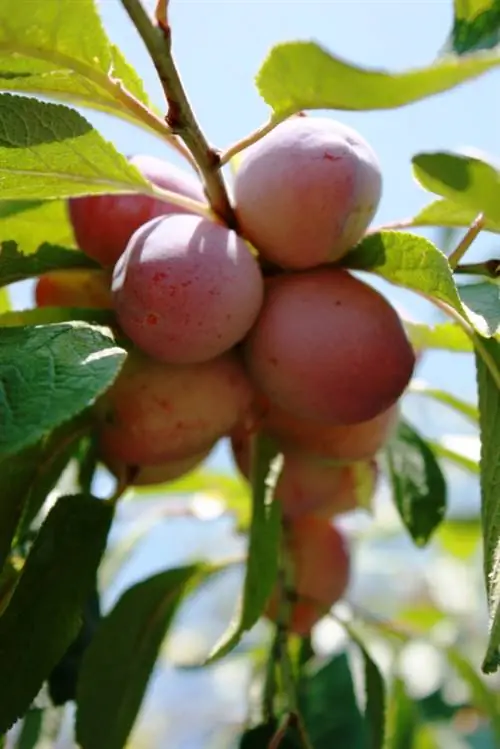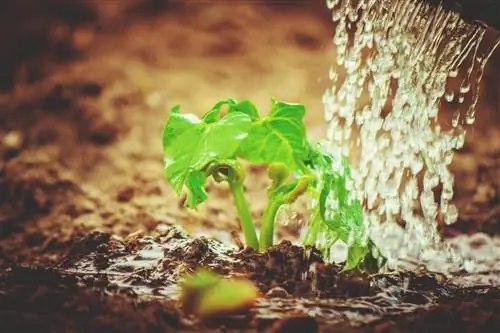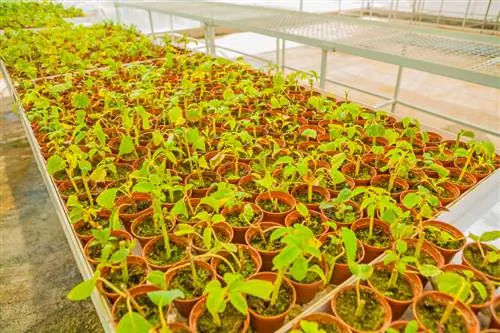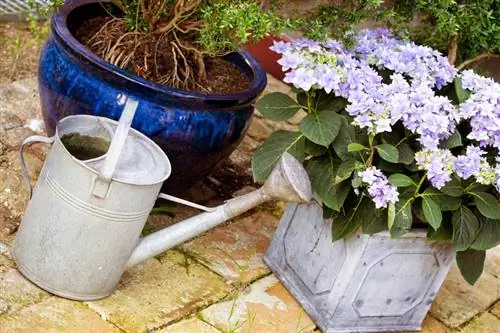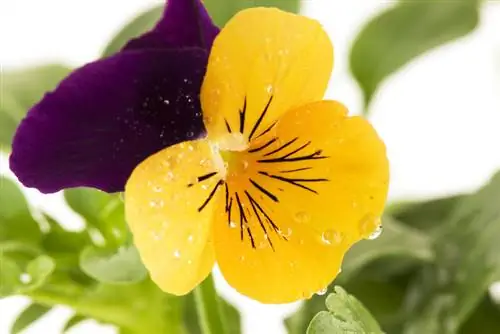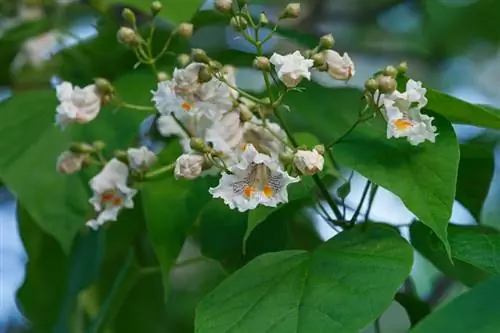- Author admin [email protected].
- Public 2023-12-16 16:46.
- Last modified 2025-01-23 11:20.
The Prunus domestica delights with a bountiful harvest when properly cared for and in an ideal location. Natural fertilizers provide additional support for growth every one to two years. The following article explains what you should pay attention to.
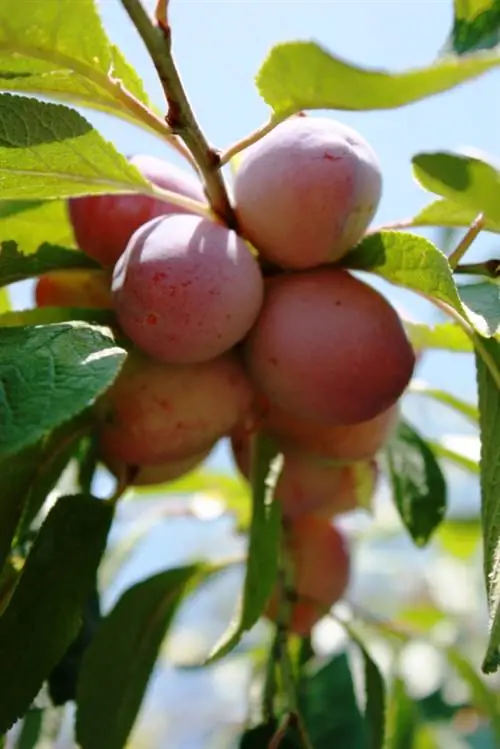
How should you fertilize a plum tree?
In order to properly fertilize a plum tree, we recommend using mature compost, manure or manure as well as special fruit tree liquid fertilizer. Young trees should be fertilized annually, and every two years from the fifth year onwards. Over-fertilization should be avoided to prevent pests and frost damage.
Pay attention to the origin:
Basically, there are different ways to positively support plant growth. However, it is advisable to take a detailed look at the origin of the fertilizers used.
Compost
For the production of natural fertilizer, it is recommended to only use untreated plants. Fertilize with mature compost.
Stable manure or dung
Ask suppliers of manure or manure carefully. This fertilizer is only compatible with your plum tree without any residual medication.
Fertilizer for fruit trees
Ideally, liquid fertilizer is used. When purchasing, make sure that it is suitable for fruit trees.
Fertilize trees properly
When planting the plum tree, add a little compost directly into the excavation. In the following three to four years, fertilize as follows:
The following rule of thumb applies:
- maximum one to two liters per year
- young trees: support annually
- fertilize every two years from the fifth year onwards
In addition, a small amount of horn meal (€6.00 on Amazon) can promote the nutrient content of the soil. Work this natural remedy directly into the base of the plum tree.
Prevent and detect overfertilization
Plum trees require small amounts of nitrogen fertilizer. They react sensitively to excessive amounts. The following features are noticeable:
- Excessive shoot growth: fruit and flower production declines
- soft flowers, leaves and plums due to rapid growth
- Consequence: more susceptible to pests
- immature wood suffers from frost damage
Make sure that lawn fertilizer is not used near the Prunus domesticas. This has a negative effect on development due to the high nitrogen content. So that hobby gardeners can be on the safe side, it is recommended to carry out regular soil tests. For this purpose, a site soil sample is examined by specialists every four years. For sustainable growth, it may make sense to carry out a magnesium test at the same time. A garden pass provides information about environmentally friendly fertilization.
Tips & Tricks
Plum trees need regular pruning to grow well. In this way, hobby gardeners can enjoy large, juicy fruits and wonderful shade.

